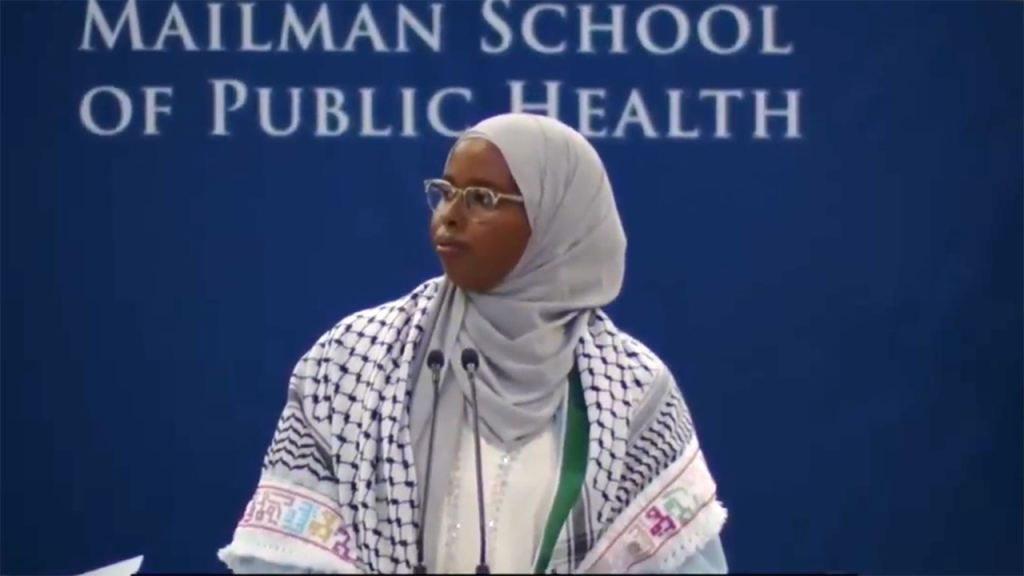A Columbia University student made anti-Israel remarks during her commencement address, which was disrupted by a microphone glitch cutting off her speech. Saham David Ahmed Ali criticized the school for staying silent on the Gaza war, resulting in pressure for her to stay quiet. Students in the audience chanted “let her speak” in support of Ali as she continued her speech, which lasted approximately 15 minutes. The university denied intentionally impeding her speech and attributed the microphone cutting off to a technical glitch.
The main commencement address at Columbia University was canceled due to anti-Israel demonstrations on campus and instead, President Minouche Shafik wrote an op-ed in the student newspaper congratulating the newest graduates. She acknowledged the challenges faced by the community over the past seven months, including the unfolding events in the Middle East and the polarization among different groups on campus. Shafik highlighted the need for the university to engage with these issues and confront the impact of protests on the Jewish community, emphasizing the importance of free expression while recognizing the complexities of the current situation.
Shafik expressed admiration for the class of 2024, recognizing the unique challenges they faced during their university experience, from the COVID-19 pandemic to ongoing conflicts. She encouraged the graduates to use these challenges as opportunities for growth and to become the future leaders that the world needs. Shafik offered heartfelt congratulations to the graduates and their families, wishing them luck in their future endeavors. Despite the cancellation of the traditional commencement ceremony, she emphasized the resilience and strength of the graduating class.
The incident with Saham David Ahmed Ali’s speech at the Mailman School of Public Health highlights the ongoing tensions surrounding the Israel-Palestine conflict and the impact it has on university campuses. The disruption of her address underscores the complexities of navigating issues of free speech, activism, and campus politics. Columbia University’s response to the incident reflects the need for thoughtful engagement with sensitive topics and the importance of creating a space for diverse perspectives while maintaining a respectful and inclusive environment for all members of the community.
The cancellation of the commencement ceremony and the shift to an op-ed from the university president demonstrate the challenges faced by educational institutions in addressing current events and balancing the needs of different student groups. The decision to forego the traditional ceremony in favor of a written message reflects the university’s commitment to acknowledging and grappling with the difficult issues facing its community. Shafik’s words of encouragement and acknowledgement of the graduates’ resilience serve as a reminder of the importance of coming together in times of crisis and uncertainty.
Overall, the incidents at Columbia University highlight the ongoing complexities of navigating contentious issues on college campuses and the need for open dialogue, understanding, and respect among diverse student groups. As graduates move forward into the world as future leaders, they will carry with them the experiences and challenges of their university years, shaping their perspectives and responses to the pressing global issues of their time. The response from university leadership and the student body reflects a commitment to engaging with difficult topics while fostering a sense of community and support for all members, regardless of differing viewpoints.


